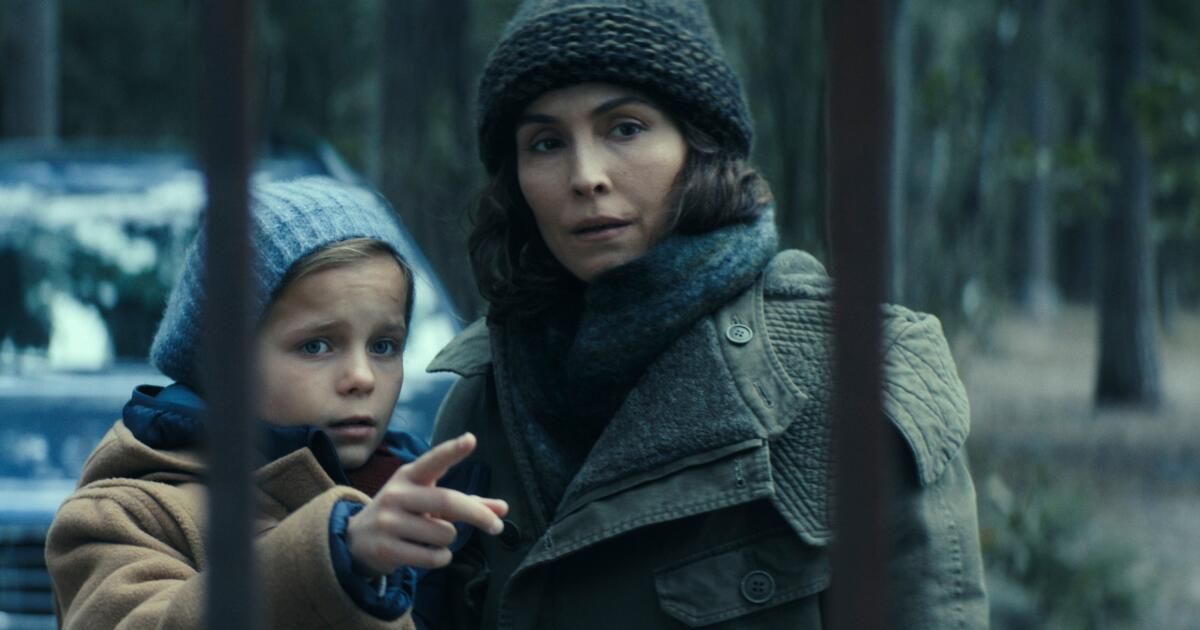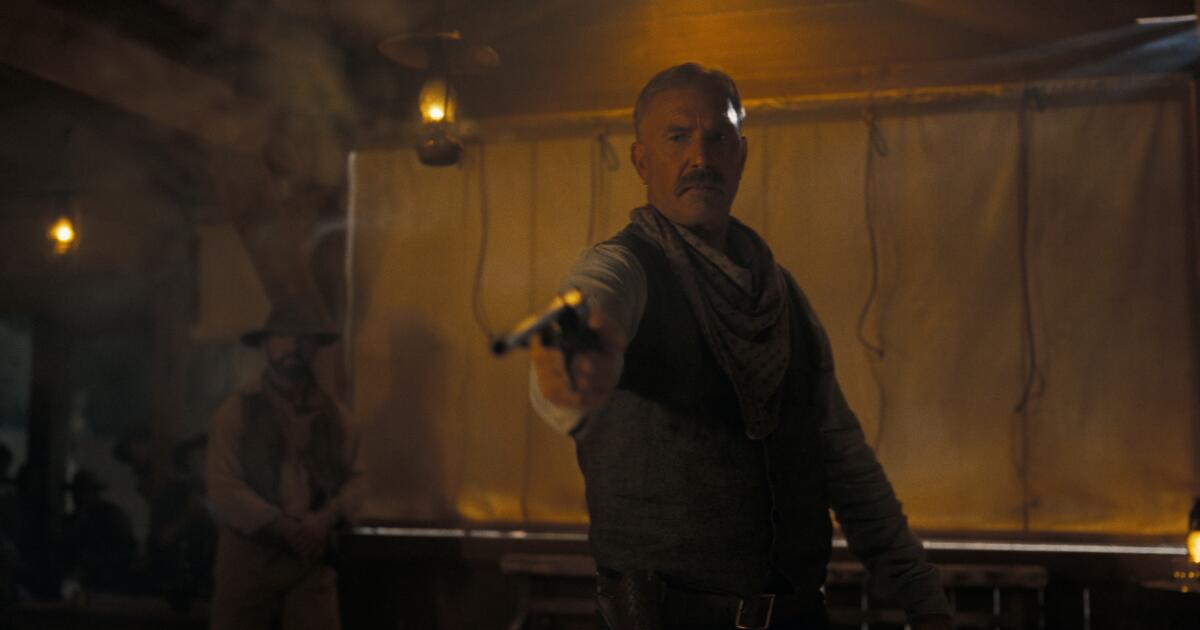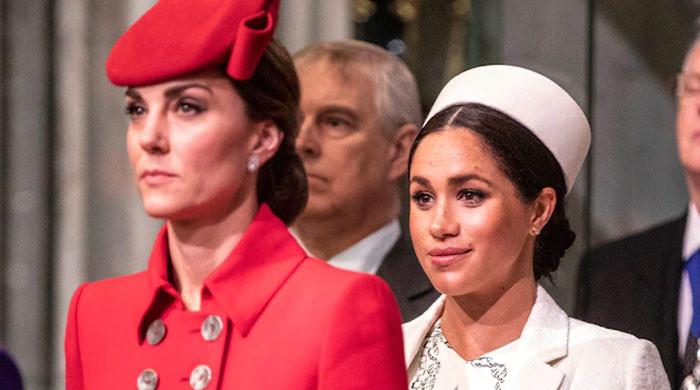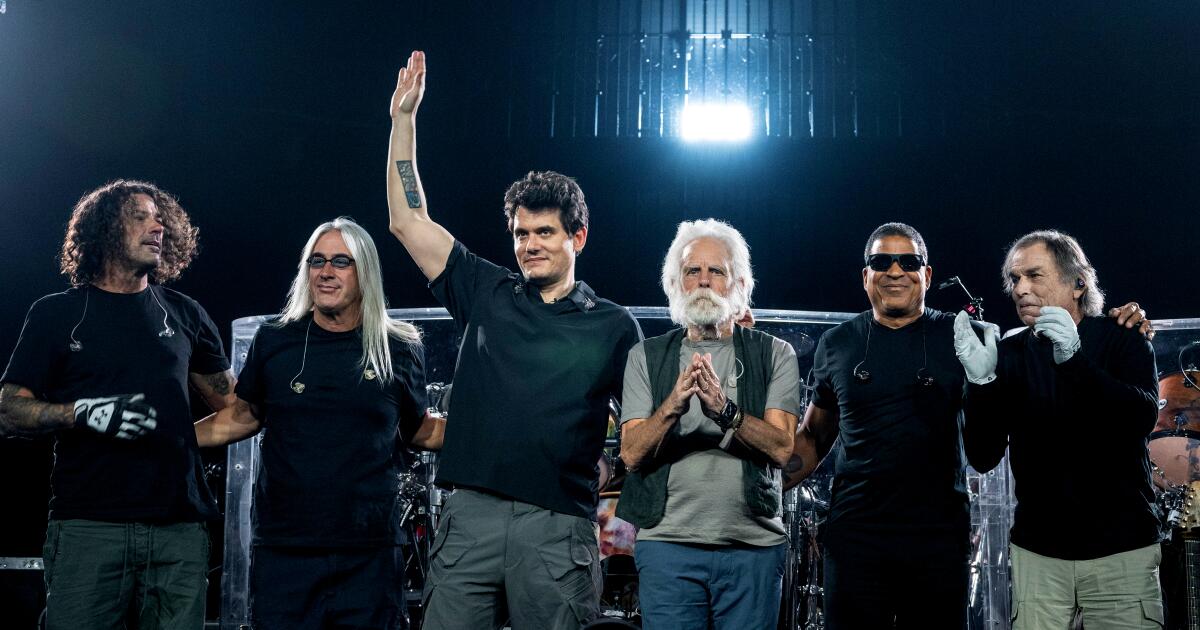Premiering Wednesday on Apple TV+, “Constellation” is a premium series about the bond between a mother and daughter, written in science fiction and set in outer space, the suburbs of Cologne, Germany and the Arctic snow.
Quantum mechanics has been greatly exploited by science fiction, for its poetry and practicality, but rarely as explicitly as here. Superposition and entangled particles, the observer effect and liminal space are discussed and represented, metaphorically and otherwise; There is even a cat that is alive and dead. In fact, it is very much a story of life and death, or more properly a story of life and death.
Noomi Rapace plays Jo Ericsson, an astronaut serving on the International Space Station with four others; She is chatting on a tablet with her 11-year-old daughter on Earth when something disastrously crashes into the station, killing a crew member (William Catlett as Paul Lancaster). Sent on a spacewalk to assess the damage, Jo dislodges what appears to be the desiccated body of a woman in a Russian cosmonaut's suit, circa the late 1960s, flying out of reach. Then, as the life support systems begin to shut down, three of the remaining astronauts depart in an escape capsule, filling it to capacity, while Jo races to repair a second capsule to bring home. All of this is suspenseful, exciting and convincingly handled, and it's worth taking a moment to marvel at how far we've come in both special effects and what TV platforms are willing to pay for.
The series also stars Rosie and Davina Coleman, both playing Alice, and James D'Arcy as Magnus, Jo's husband.
(Apple TV+)
When Jo returns to Earth, nothing seems quite right: not the hostility of her husband, Magnus (James D'Arcy), not the color of her car, not the fact that her daughter, Alice (Davina and Rosie Coleman) ), does not speak Swedish. (The casting of the twins is dramatically significant, as is the name Alice, an echo of Lewis Carroll's heroine.) And somehow she knows how to play the piano. The viewer will immediately feel that the problem is not with Jo but with the world, no matter how much the world considers Jo to be out of line. Her memories are dismissed as hallucinations, as symptoms of “high-altitude psychosis” or “astronaut burnout,” and, without any real explanation, she is administered lithium and lithium disguised as vitamins. (Other characters, including Russian space boss Irene Lysenko, played by Barbara Sukowa, are also taking pills.)
The first two episodes, of eight, are largely set in space and address the accident, its aftermath, and Jo's return to Earth, where she will spend the rest of the series. There's a lot of talk about a shiny bottle that Henry Caldera (Jonathan Banks), a Nobel Prize-winning scientist and former astronaut, and another pill user, insists be brought back to Earth. When we suddenly go from a landlocked business to a cruise ship in the middle of the ocean to a very different Caldera, we get an idea of what we might be dealing with here.
There are temporal dislocations, flashbacks and flashforwards and what we might call side flashes, sometimes just for an instant, and it can be difficult to follow the complicated architecture or remember exactly what reality we are facing at any given moment. Still, while I wasn't always sure how, or if, some of the pieces stacked up, the dramatic intent was always clear, and what wasn't obvious at the beginning (mostly) became obvious later on. For all the sci-fi filigree, the thrust of the series is emotional, especially, though not entirely, when it comes to Jo and Alice, who don't quite recognize each other, and the family drama that Magnus completes.
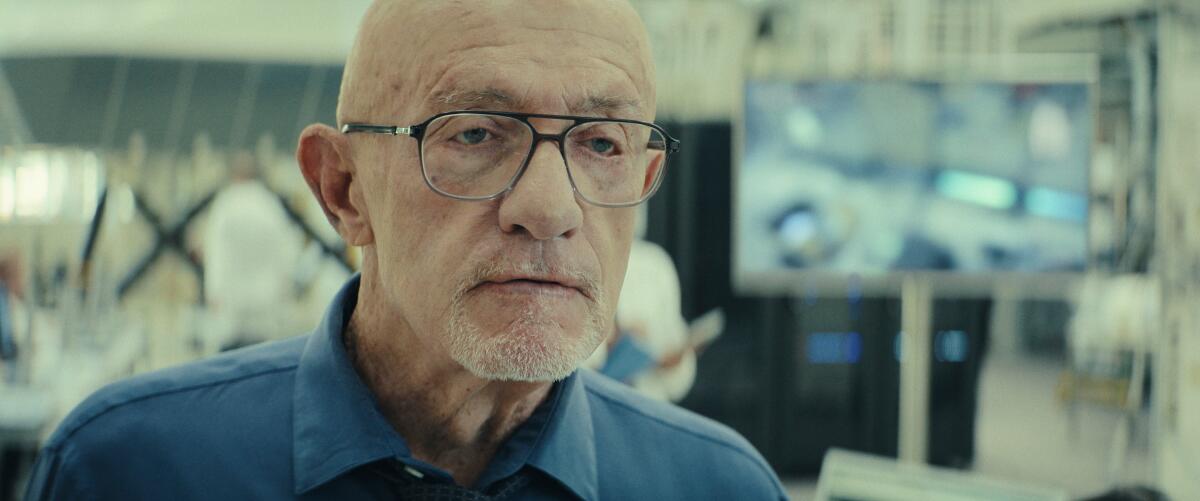
Jonathan Banks plays Henry Caldera, a Nobel Prize-winning scientist and former astronaut.
(Apple TV+)
From the moment everything goes wrong on the space station, the series remains tense. There are elements of horror in the staging and editing (at least one shot that seemed like an homage to Stanley Kubrick to me) and psychological chaos. Things that aren't what they should be and familiar people who don't seem to be themselves are undoubtedly old, reliably terrifying devices.
The characters struggle to find each other through interference patterns; Whenever someone you care about turns their back on someone you care about, it's never certain who will be there or where they will be when they turn around. The narrative is lengthy (the space scenes alone could take up an entire feature film) and the pacing is what many will consider slow. I'd call it a deliberate, slow-paced, smarter way to fill eight hours of television than filling them with extraneous plots and characters. It's true that the narrative involves some repetition and circularity, and I imagine some will find “Constellation” frustrating (you have to follow its flow), but it's all to the point.
Created by British playwright and screenwriter Peter Harness (who wrote for both “Doctor Who” and “Wallander” seems appropriate), it is a French-English-American co-production that, characteristic of European television, has a visual clarity, a absence of gloss and an air of reality even when realism becomes magical. (French co-production Haut et Court was also behind the great undead series “Les Revenants”). The mood – the bad mood – is reminiscent of the German series “The Dark”, which twists time, and the theme is partly reminiscent of “Counterpart”, the alternative world series set in Berlin, with JK Simmons in a double paper.
The latest developments suggest that there is more to come: “Constellation” is not advertised as a limited series, although I would say that nothing more is necessary. The series, or the season, reaches a conclusion that, if not necessarily expected, seems true. You can take it as a tribute to the series as it is. Not every show, not even every great one, needs to come back.

